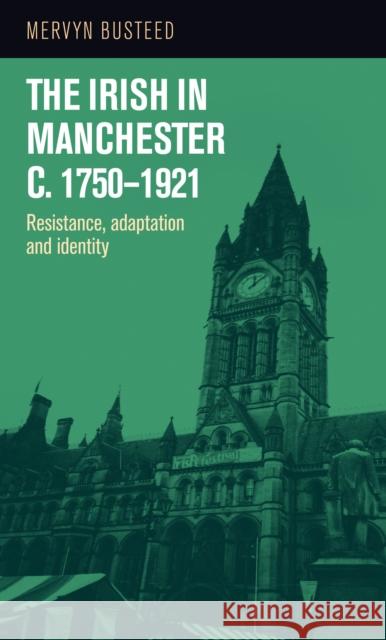The Irish in Manchester C.1750-1921: Resistance, Adaptation and Identity » książka
The Irish in Manchester C.1750-1921: Resistance, Adaptation and Identity
ISBN-13: 9780719087196 / Angielski / Twarda / 2015 / 296 str.
The Irish in Manchester C.1750-1921: Resistance, Adaptation and Identity
ISBN-13: 9780719087196 / Angielski / Twarda / 2015 / 296 str.
(netto: 417,35 VAT: 5%)
Najniższa cena z 30 dni: 431,97
ok. 30 dni roboczych.
Darmowa dostawa!
The book examines the ways in which Irish immigrants to nineteenth-century Manchester managed to preserve and express their distinctive identity in the first British city to undergo the industrial revolution. It outlines how historic anti-Irish prejudice was renewed by making the Irish the scapegoats for the ills of urban industrial development. It goes on to analyse the various strategies the Irish devised to cope with what they found to be an alien and sometimes overtly hostile situation. Using extensive archival sources it examines the extent and preservation of residential segregation in one strongly Irish district. The significance of the Catholic Church as a source of spiritual comfort and the base for a local network of religious, mutual aid, cultural and social organisations is examined. The book also investigates the ways in which the Irish sought to use the organisations and institutions which emerged the city for their own distinctively Irish purposes, forming sometimes troubled alliances with local campaign groups such as trade unions and Chartists and the Liberal party and the contribution which elected Irish public representatives made to the wider civic life of the city as well as to their own community. There is detailed discussion of how the Irish also utilised local traditions to preserve and perform their Irish identity in public events and how the ownership of such occasions was contested between groups with differing definitions of the nature of Irish identity. In particular the relationship between moderate nationalism and an increasingly assertive separatist tradition is traced, culminating in an open military campaign in the city. Overall the book traces how an immigrant group strives to accommodate itself to a host city whilst striving to retain a sense of distinctive identity.











